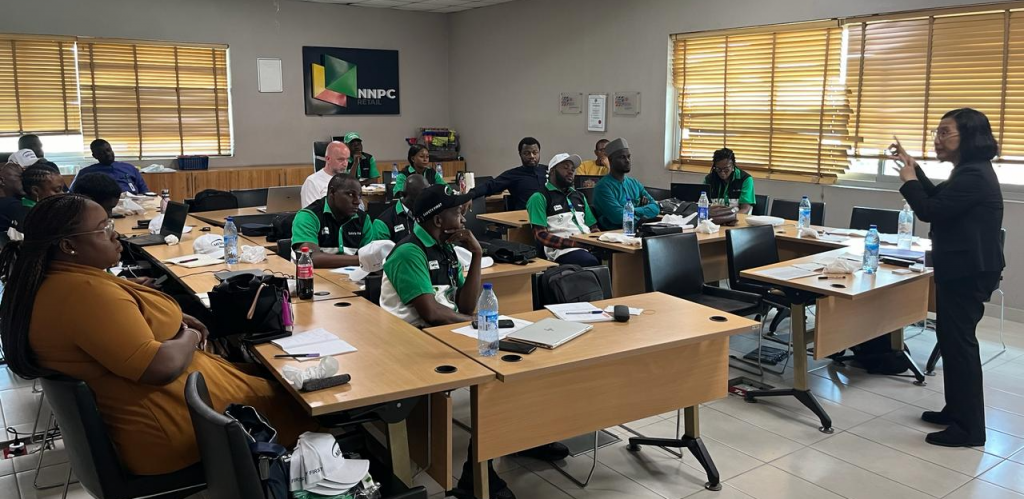Following the success of a November 2023 program in Nigeria, the U.S. Grains Council (USGC) returned to the country last week to continue engagement with local stakeholders as the interest in E10 use in Nigeria’s fuel mix continues to grow.
In 2007, Nigeria implemented an E10 policy, but it was suspended shortly after its implementation. The Council’s follow-up trade mission aimed to reinforce the benefits of reimplementing an E10 mandate with key government stakeholders; build technical knowledge of the ethanol supply chain; and form relationships with Dangote oil refinery, gasoline importers and retail station representatives.
“During the first day of the mission, the USGC team met with Dangote refinery’s top management and discussed details regarding the refinery operations and blending capacity, as well as technical challenges during loading and discharging operations,” said Ramy H. Taieb, USGC regional director for Europe, the Middle East and Africa.
Dangote refinery runs at 325,000 barrels per day (bbls/day) and plans to increase to its nameplate capacity of 650,000 bbls/day in phases. Dangote is based in Lekki Free Trade Zone, and ongoing discussions with the Nigerian government will determine the proportion of production sold into the domestic market versus the proportion to be exported. The remaining local demand and bioethanol can be imported by NNPC (a Nigerian state-owned oil company) and other local refineries, as well as oil downstream players.
In addition to meeting with key stakeholders in the country, the Council also hosted a technical workshop focusing on the development of the E10 fuel market in Nigeria. The workshop covered fuel standards and specifications; vehicle fleet compatibility; ethanol fuel blending systems; ethanol fuel operations; and water tolerance and phase separation.
“The Council held an ethanol technical workshop at the NNPC retail depot in Apapa, Lagos, with Major Energies Marketers Association of Nigeria (MEMAN) and NNPC staff to build the technical knowledge of key downstream operators in the ethanol and E10 supply chain. By offering technical information, we hope to have heightened stakeholders’ readiness for a possible transition to E10,” Taieb said.
The Council will continue to promote and market ethanol’s octane economics and environmental benefits to support policy development in Nigeria and across West Africa.
About The U.S. Grains Council
The U.S. Grains Council develops export markets for U.S. barley, corn, sorghum and related products including distiller’s dried grains with solubles (DDGS) and ethanol. With full-time presence in 28 locations, the Council operates programs in more than 50 countries and the European Union. The Council believes exports are vital to global economic development and to U.S. agriculture’s profitability. Detailed information about the Council and its programs is online at www.grains.org.

